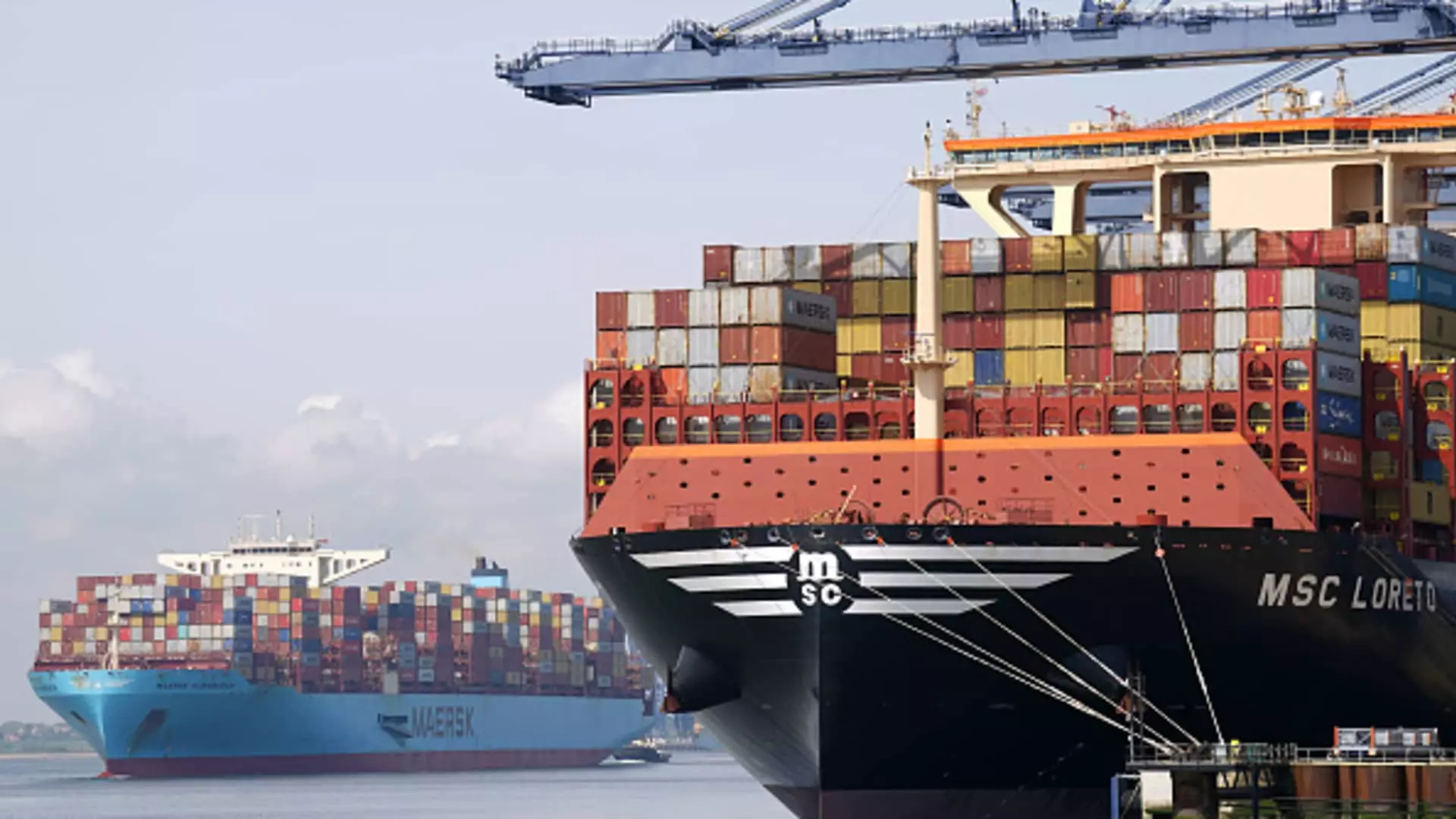As 2025 unfolds, investors are wading through a quagmire of uncertainty spawned by the U.S. tariffs imposed by President Donald Trump. These tariffs, unveiled with great fanfare in April, have stirred up chaos that transcends mere financial speculation. We’re witnessing a rapidly evolving landscape marked by not only economic forecasts gone awry but also a palpable anxiety within the global trade community. Negotiators from both the European Union and the United Kingdom are pacing the halls of power in an attempt to alleviate the blanket tariffs of 25% and 10% while the world’s eyes are glued to the ever-volatile U.S.-China relationship. It’s a game of cat and mouse, and the stakes have never been higher.
Consumer Sentiments: A Crumbling Aspirational Market
Luxury brands like LVMH are already sounding alarms that the once “aspirational clientele” may soon hesitate, thanks to financial pressures caused by these tariffs. Goods that were once luxuries might soon mutate into delicacies that average consumers can no longer indulge in. With rising tensions and an unpredictable spending climate, even luxury companies are feeling the pinch; their viability in an ever-tightening economy is becoming questionable. The idea that the affluent will always spend freely is being challenged as consumer confidence starts to wane, and luxury behemoths are bulwarks for just how fragile our economic fabric truly is.
Maersk: A Bellwether on the Brink
Danish shipping company Maersk stands as a vital canary in the coal mine for global trade. Set to report earnings on May 8, analysts predict that its earnings will exhibit a stark decline, dropping from $3.6 billion to a meager $2.3 billion. This reflects an intense scrutiny from investors and a growing impatience with how companies plan to navigate the murky waters of these tariffs. The company’s declaration that the tariffs pose “significant” threats to the global economy encapsulates a harrowing reality: a trade war could unleash a domino effect that devastates industries beyond just shipping. The intricate ballet of international trade has too many players, and Maersk’s struggles mirror an industry that could very well be on the brink of collapse.
Shell’s Energy Predicament Amid Market Turmoil
In the oil and gas sector, the turbulence catalyzed by tariffs is equally alarming. Shell’s impending earnings results have become a litmus test for the entire energy market, especially amidst plummeting oil prices and rising recession fears. Predictions indicate a drop in their adjusted earnings from $7.73 billion to $5.14 billion year-on-year. While Shell attempts to fortify its position by cutting costs and enhancing shareholder returns, it finds itself at the mercy of circumstances that it cannot control. The paradox of being a leader yet vulnerable encapsulates the very essence of volatility in a sector that was once perceived as more stable. If Shell struggles, one can only imagine the plight awaiting smaller players in the oil market who lack the heft to hedge against such adversity.
Automotive Giants Caught in Tariff Crossfire
The automotive sector faces its own impending storm, as exemplified by Volkswagen’s anticipated earnings report on April 30. With tariffs affecting U.S. manufacturers’ competitive edge, Volkswagen’s struggle to maintain profitability becomes more apparent. The company might report a higher revenue of about €77.6 billion, but analysts indicate that their earnings before interest and taxes are still expected to dip. The fear is palpable; as tariffs loom over the automotive industry, manufacturers that depend heavily on the U.S. market are sinking into turmoil. Panic-buying among consumers may temporarily mask the broader impact, but the underlying tension over tariffs is like a ticking time bomb.
Airlines in the Wind: The Impact of Geopolitical Tensions
As geopolitical tensions mount, the aviation industry finds itself in a precarious position. Lufthansa’s upcoming performance report could reveal the toll these uncertainties have taken on travel demand. With mounting evidence of declining visitor numbers from Western Europe to the U.S., the air travel sector, already grappling with strikes and price pressures, could find itself gasping for breath. The airline must adapt to a quickly changing landscape, yet it’s uncertain whether they can mitigate losses that are exacerbated by external crises. The industry is at the mercy of factors that are often beyond its control—an unsettling reality in the post-pandemic world.
The outlook for sectors at the mercy of tariffs is grim. With growing uncertainties tying the hands of corporations, investors are rightfully jittery. The quest for stability in a market rife with turmoil has become increasingly daunting, leaving many to wonder: how much more can we endure before the house of cards comes tumbling down?

